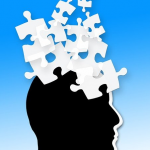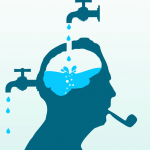As we age, bones creak, hearing wanes, and cognition diminishes. Promises of rejuvenation have always besieged a vulnerable market seeking the fountain of youth. Now, there seems to be a clinically tested elixir that promises to restore lost brain power – a simple Chinese herbal remedy. So, does it work?
Alzheimer's
The coronavirus pandemic has spawned an equally concerning mis- and disinformation pandemic. The latest myth is that mRNA vaccines may trigger prion diseases like Alzheimer's.
With vanishingly few exceptions, we do not understand the underlying causes of dementia. A new study adds evidence to the hypothesis that unintended side-effects of anticholinergics may be involved.
A few articles from the stack I've created. It's a way to gently open the firehose of information and articles that come across our desks each week.
Our ability to forget provides a survival advantage – while assuaging suffering in the process.
President Donald Trump completed his first periodic medical examination at Walter Reed National Military Medical Center. His White House physician, Rear Adm. Ronny Jackson, released a statement of his findings and held a protracted press conference. His conclusions discussed here.
Too much, too little, and just the right amount of sleep have been linked to death. Sorry.
In the fight against Alzheimer's, memory loss has kept its place as the frontrunner of early warning signs, but that may no longer hold true.
Pregnant women are advised to avoid cat litter boxes — so they don't get infected with Toxoplasmosis gondii, which can cause birth defects. Recent research also suggests that this parasite may also be linked to neurodegenerative diseases such as Parkinson's and Alzheimer's.
While we often pooh-pooh the claims of marketers for the efficacy of dietary supplements, we're not blind to the possibilities. One supplement that has been studied in transgenic growth hormone (or TGM) mice may hold promise for treating or staving off neuro-degenerative diseases such as Alzheimer's. More work is needed, of course.
In a surprising report, researchers using data from the long-term Framingham, MA study have shown that the age-specific incidence of new cases of dementia have actually fallen by 44 percent since 1977. The number of overall new cases, however, will continue to rise as the population ages.
A.D.H.D., once thought of as a disorder that affects only children and young adults, may not fade nor disappear in adulthood, which is why a doctor at Johns Hopkins believes it may affect the elderly as well.






